As we inch closer to the 60th anniversary of our Independence, the chorus of praise for our democracy is bound to become louder and louder.
Dileep Padgaonkar
As we inch closer to the 60th anniversary of our Independence, the chorus of praise for our democracy is bound to become louder and louder.
Our own politicians and pundits on public affairs can be trusted to hold forth on the subject with much hyperbole.
None of this would be entirely misplaced for, despite its many flaws, which are legion, democracy has stood India in excellent stead.
Our people have enjoyed unparalleled freedom of belief and expression, faith and movement. Our judiciary and media have functioned without let or hindrance.
We have been able to boot out our rulers in elections held on schedule, and, what is no less significant, in an increasingly fair manner thanks to a vigilant Election Commission.
Moreover, democracy has allowed us to find solutions to some of our most intractable problems arising from a society fragmented along lines of religion and caste, class and gender, language and region.
Above all, it has kept India in one piece and, by that token, confounded the doomsayers who seldom missed an opportunity during the past six decades to foretell the imminent implosion of the nation.
Still, democracy alone cannot entirely account for what goads India to strive to rise above social divisions, to resist parochial pulls, to rebuff the seductions of bigotry.
A fuller explanation has to be sought in the fact that we are not only a democracy but also a republic. The word ‘republic’ seldom figures in our public discourse.
It is often seen to be a mere synonym for democracy. This is wholly misleading for the ideas contained in the two words are by no means interchangeable.
The key members of the Constituent Assembly realised this. In the framing of the Constitution they made sure that democratic and republican values would sustain India in equal measure.
Democracy was an imperative to guarantee that freedom, which is the quintessential trait of a civilised polity, flourished. But the well-being of the citizenry also called for the inculcation of republican values.
These values were lucidly spelt out by Jawaharlal Nehru when he moved the Objectives Resolution in the Constituent Assembly on December 13, 1946.
He proclaimed that as an “independent, sovereign republic” India would guarantee to all its citizens “justice, social, economic and political; equality of status, of opportunity, and before the law; freedom of thought, expression, belief, faith, worship, vocation, association and action subject to law and public morality… and adequate safeguards for minorities, backward and tribal areas and depressed and other backward classes.”
The adoption of the republican Constitution in the face of stiff opposition from several reactionary quarters was nothing short of revolutionary.
It placed the individual and not the community - as communalists and casteists sought to do - at the core of the scheme of things.
And it gave short shrift to efforts to base the polity on the idea of ‘village republics’ that was dear to retrograde Gandhians and Hindu chauvinists alike.
One of the most brilliant and eloquent spokesman for the republican cause, BR Ambedkar, firmly rebuffed these efforts when he said: “What is the village but a sink of localism, a den of ignorance, narrow-mindedness and communalism?”
The retort was then dismissed as ‘typical of the urban high-brow’. Advocates of sectarian causes use these very words today to dub anyone who emphasises republican virtue.
To uphold this virtue means to lay store by reason, and not by faith or community feeling, in public life. This explains the republican’s penchant for education which teaches a student how to think for himself rather than how to find a place in the job market.
In an ideal republic, a teacher and a scientist thus counts for more than a priest, padre or mullah.
A republican therefore frowns on celebrities, advertising gurus, PR professionals, ‘spiritual’ leaders, and, at a pinch, even journalists.
For him hype - in text, speech or image - is taboo. He is wary of populism in politics and the dumbing down of culture. He is, in essence, the very antithesis of the Page 3 phenomenon.
A republic breeds enlightened citizens, not just voters or consumers. It encourages patriotism - which allows you to love your country without hating another - and, by that logic, steers clear of nationalist fervour.
It places a higher premium on the state than on the market or what is fashionably known today as ‘civil society’ for it believes that a state can and should rise above sectional interests, including mercantile interests, to cater to the needs of the citizenry as a whole.
That is why the civil servant and the army officer too are the stuff of a republic for it is they who are the front-line guardians of the integrity and sovereignty of the nation.
India has many reasons to pride herself on her democracy even after making allowance for its venal politicians, dynastic rulers and appalling electoral practices. But can she draw as much pride as a republic? The record here is a mixed one. Our early republican achievements include the setting up of institutes of science, technology and management. The abolition of zamindari and privy purses and the slew of laws in favour of minorities and women also bear a republican cachet.
On the flip side mention must be made of our failure to develop a heightened civic sense, to nurture robust institutions, to eradicate illiteracy and to keep philistinism at bay.
We have also not dealt sternly enough with the merchants of hate, bigotry and parochialism - and this includes the advocates of communal and caste interests, the former parading as warriors of ‘cultural nationalism’, and the latter as knight-errants of ‘social justice’.
But we need not lose heart. Our finest minds have seen through the conceits of those who exploit democracy for their narrow and dangerous ends to the detriment of those who form the sole receptacle of sovereignty in our republic: not God or Mammon, nor this or the other section of the population, but the people of India taken as a single, undifferentiated whole.
Dileep Padgaonkar is a veteran journalist.
![submenu-img]() Meet India's highest paid director, charges 30 times more than his stars; not Hirani, Rohit Shetty, Atlee, Karan Johar
Meet India's highest paid director, charges 30 times more than his stars; not Hirani, Rohit Shetty, Atlee, Karan Johar![submenu-img]() Indian government issues warning for Google users, sensitive information can be leaked if…
Indian government issues warning for Google users, sensitive information can be leaked if…![submenu-img]() Prajwal Revanna Sex Scandal Case: Several women left home amid fear after clips surfaced, claims report
Prajwal Revanna Sex Scandal Case: Several women left home amid fear after clips surfaced, claims report![submenu-img]() Meet man who studied at IIT, IIM, started his own company, now serving 20-year jail term for…
Meet man who studied at IIT, IIM, started his own company, now serving 20-year jail term for…![submenu-img]() Gautam Adani’s project likely to get Rs 170000000000 push from SBI, making India’s largest…
Gautam Adani’s project likely to get Rs 170000000000 push from SBI, making India’s largest…![submenu-img]() DNA Verified: Is CAA an anti-Muslim law? Centre terms news report as 'misleading'
DNA Verified: Is CAA an anti-Muslim law? Centre terms news report as 'misleading'![submenu-img]() DNA Verified: Lok Sabha Elections 2024 to be held on April 19? Know truth behind viral message
DNA Verified: Lok Sabha Elections 2024 to be held on April 19? Know truth behind viral message![submenu-img]() DNA Verified: Modi govt giving students free laptops under 'One Student One Laptop' scheme? Know truth here
DNA Verified: Modi govt giving students free laptops under 'One Student One Laptop' scheme? Know truth here![submenu-img]() DNA Verified: Shah Rukh Khan denies reports of his role in release of India's naval officers from Qatar
DNA Verified: Shah Rukh Khan denies reports of his role in release of India's naval officers from Qatar![submenu-img]() DNA Verified: Is govt providing Rs 1.6 lakh benefit to girls under PM Ladli Laxmi Yojana? Know truth
DNA Verified: Is govt providing Rs 1.6 lakh benefit to girls under PM Ladli Laxmi Yojana? Know truth![submenu-img]() Jr NTR-Lakshmi Pranathi's 13th wedding anniversary: Here's how strangers became soulmates
Jr NTR-Lakshmi Pranathi's 13th wedding anniversary: Here's how strangers became soulmates![submenu-img]() Streaming This Week: Heeramandi, Shaitaan, Manjummel Boys, latest OTT releases to binge-watch
Streaming This Week: Heeramandi, Shaitaan, Manjummel Boys, latest OTT releases to binge-watch![submenu-img]() Remember Ayesha Kapur? Michelle from Black, here's how actress, nutrition coach, entrepreneur looks after 19 years
Remember Ayesha Kapur? Michelle from Black, here's how actress, nutrition coach, entrepreneur looks after 19 years![submenu-img]() Remember Heyy Babyy's cute 'Angel' Juanna Sanghvi? 20 year-old looks unrecognisable now, fans say 'her comeback will...'
Remember Heyy Babyy's cute 'Angel' Juanna Sanghvi? 20 year-old looks unrecognisable now, fans say 'her comeback will...'![submenu-img]() In pics: Arti Singh stuns in red lehenga as she ties the knot with beau Dipak Chauhan in dreamy wedding
In pics: Arti Singh stuns in red lehenga as she ties the knot with beau Dipak Chauhan in dreamy wedding![submenu-img]() DNA Explainer: Why Harvey Weinstein's rape conviction was overturned, will beleaguered Hollywood mogul get out of jail?
DNA Explainer: Why Harvey Weinstein's rape conviction was overturned, will beleaguered Hollywood mogul get out of jail?![submenu-img]() What is inheritance tax?
What is inheritance tax?![submenu-img]() DNA Explainer: What is cloud seeding which is blamed for wreaking havoc in Dubai?
DNA Explainer: What is cloud seeding which is blamed for wreaking havoc in Dubai?![submenu-img]() DNA Explainer: What is Israel's Arrow-3 defence system used to intercept Iran's missile attack?
DNA Explainer: What is Israel's Arrow-3 defence system used to intercept Iran's missile attack?![submenu-img]() DNA Explainer: How Iranian projectiles failed to breach iron-clad Israeli air defence
DNA Explainer: How Iranian projectiles failed to breach iron-clad Israeli air defence![submenu-img]() Meet India's highest paid director, charges 30 times more than his stars; not Hirani, Rohit Shetty, Atlee, Karan Johar
Meet India's highest paid director, charges 30 times more than his stars; not Hirani, Rohit Shetty, Atlee, Karan Johar![submenu-img]() This superstar worked as clerk, was banned from wearing black, received death threats; later became India's most...
This superstar worked as clerk, was banned from wearing black, received death threats; later became India's most...![submenu-img]() Karan Johar slams comic for mocking him, bashes reality show for 'disrespecting' him: 'When your own industry...'
Karan Johar slams comic for mocking him, bashes reality show for 'disrespecting' him: 'When your own industry...'![submenu-img]() Kapoor family's forgotten hero, highest paid actor, gave more hits than Raj Kapoor, Ranbir, never called star because...
Kapoor family's forgotten hero, highest paid actor, gave more hits than Raj Kapoor, Ranbir, never called star because...![submenu-img]() Meet actress who lost stardom after getting pregnant at 15, husband cheated on her, she sold candles for living, now...
Meet actress who lost stardom after getting pregnant at 15, husband cheated on her, she sold candles for living, now...![submenu-img]() IPL 2024: Kolkata Knight Riders take top spot after 98 runs win over Lucknow Super Giants
IPL 2024: Kolkata Knight Riders take top spot after 98 runs win over Lucknow Super Giants![submenu-img]() ICC Women’s T20 World Cup 2024 schedule announced; India to face Pakistan on....
ICC Women’s T20 World Cup 2024 schedule announced; India to face Pakistan on....![submenu-img]() IPL 2024: Bowlers dominate as CSK beat PBKS by 28 runs
IPL 2024: Bowlers dominate as CSK beat PBKS by 28 runs![submenu-img]() IPL 2024: Big blow to CSK as star pacer returns home due to...
IPL 2024: Big blow to CSK as star pacer returns home due to...![submenu-img]() SRH vs MI IPL 2024: Predicted playing XI, live streaming details, weather and pitch report
SRH vs MI IPL 2024: Predicted playing XI, live streaming details, weather and pitch report![submenu-img]() Job applicant offers to pay Rs 40000 to Bengaluru startup founder, here's what happened next
Job applicant offers to pay Rs 40000 to Bengaluru startup founder, here's what happened next![submenu-img]() Viral video: Family fearlessly conducts puja with live black cobra, internet reacts
Viral video: Family fearlessly conducts puja with live black cobra, internet reacts![submenu-img]() Woman demands Rs 50 lakh after receiving chicken instead of paneer
Woman demands Rs 50 lakh after receiving chicken instead of paneer![submenu-img]() Who is Manahel al-Otaibi, Saudi women's rights activist jailed for 11 years over clothing choices?
Who is Manahel al-Otaibi, Saudi women's rights activist jailed for 11 years over clothing choices?![submenu-img]() In candid rapid fire, Rahul Gandhi reveals why white T-shirts are his signature attire, watch
In candid rapid fire, Rahul Gandhi reveals why white T-shirts are his signature attire, watch


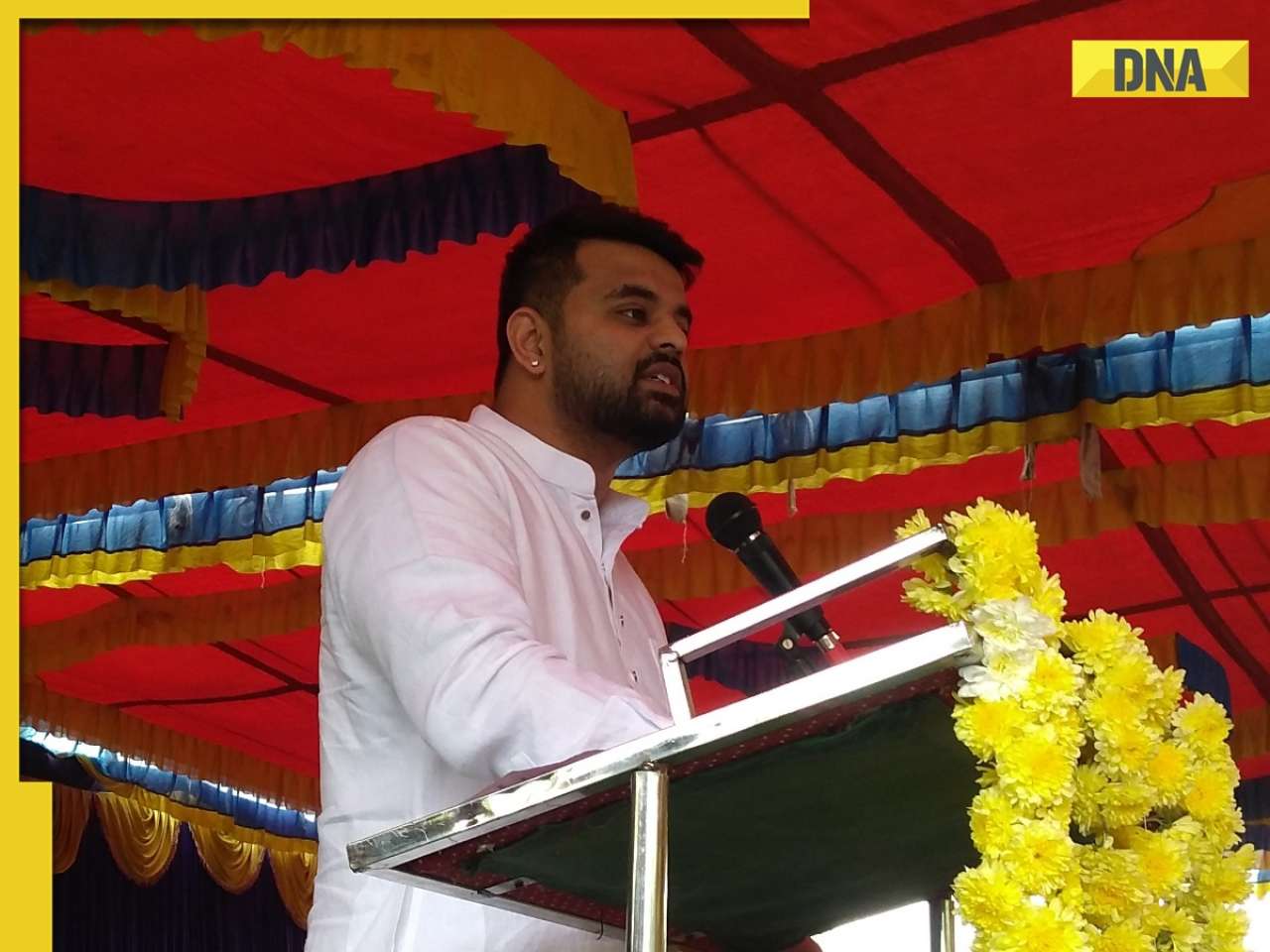

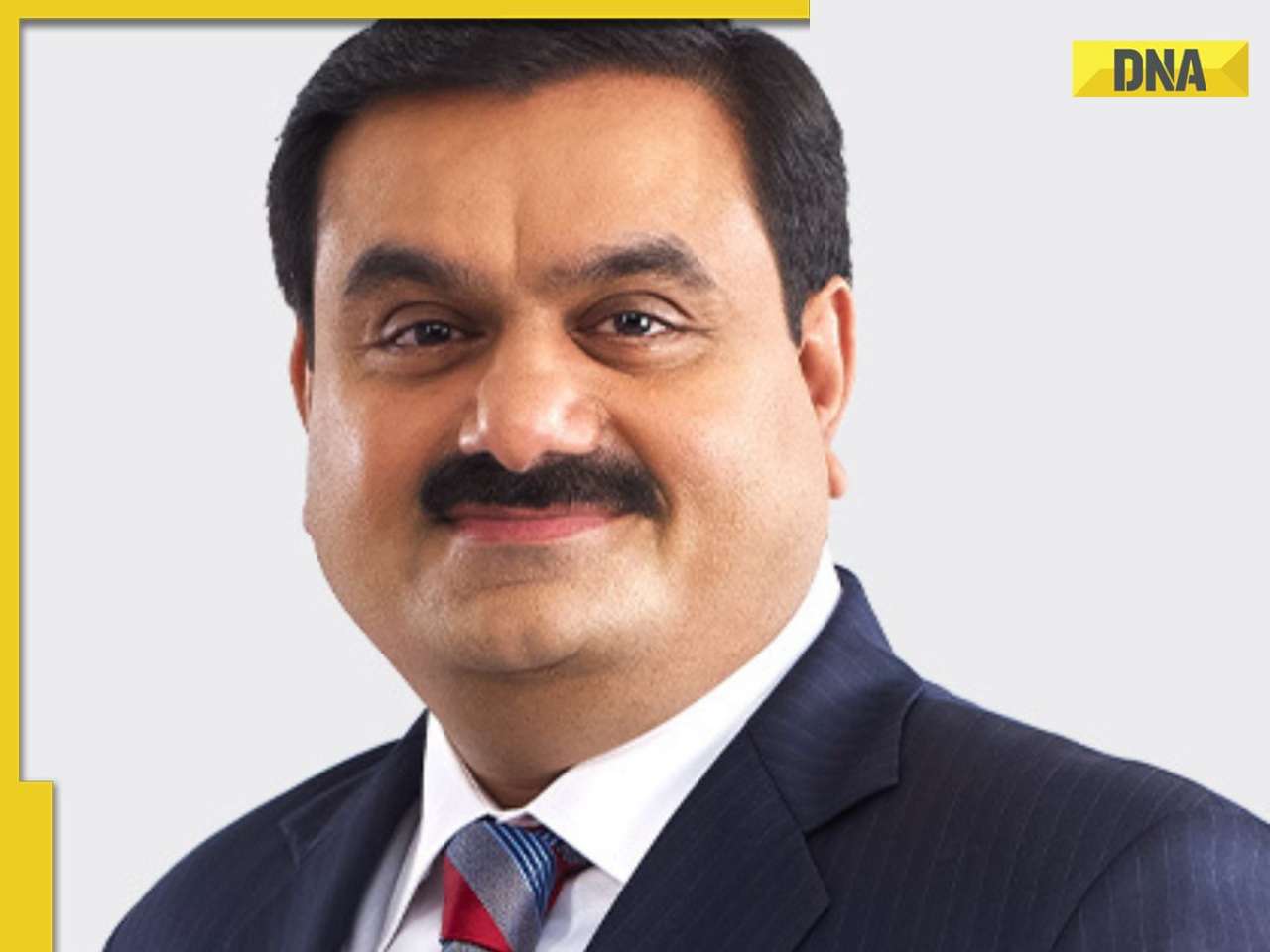





















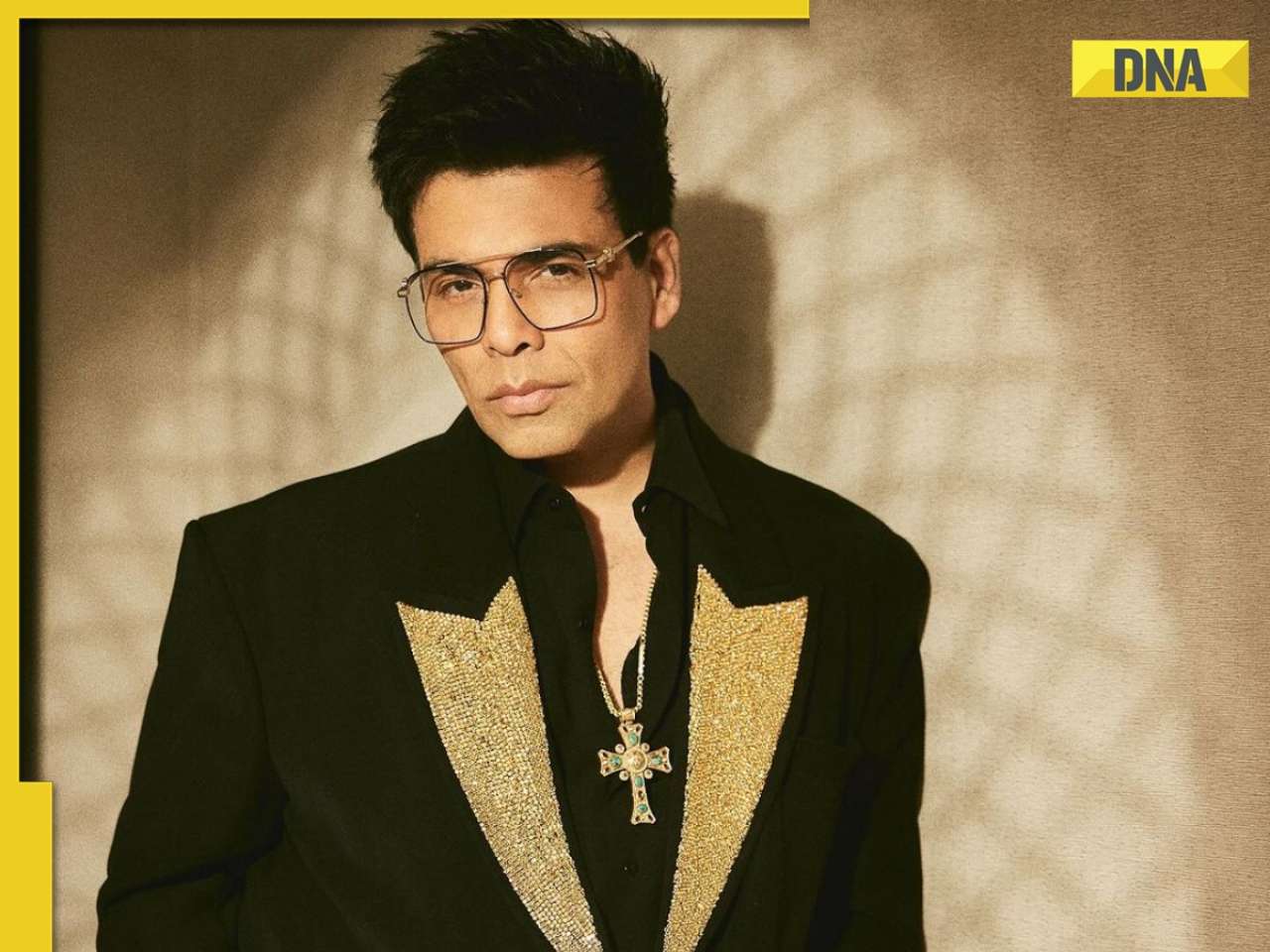
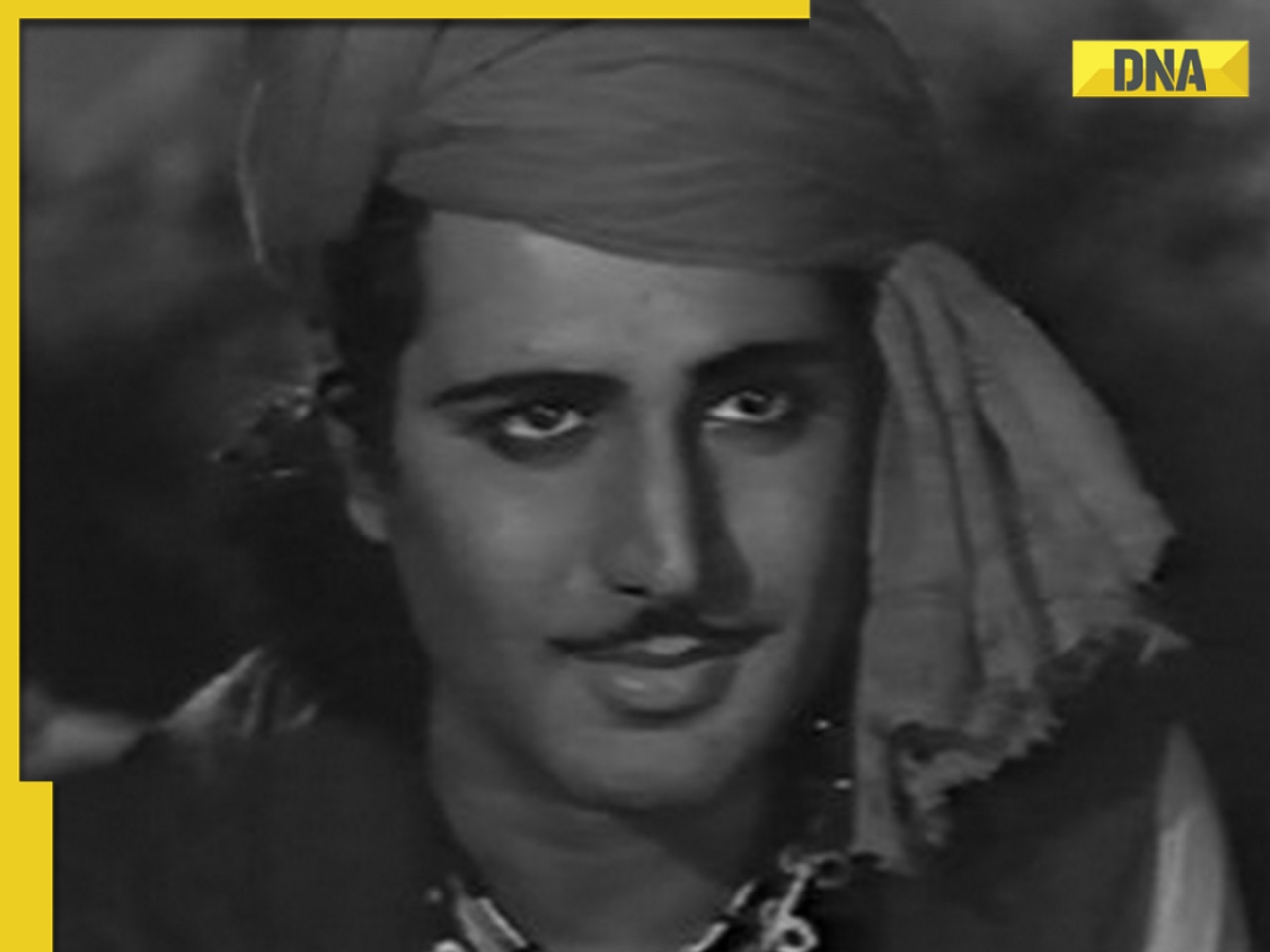


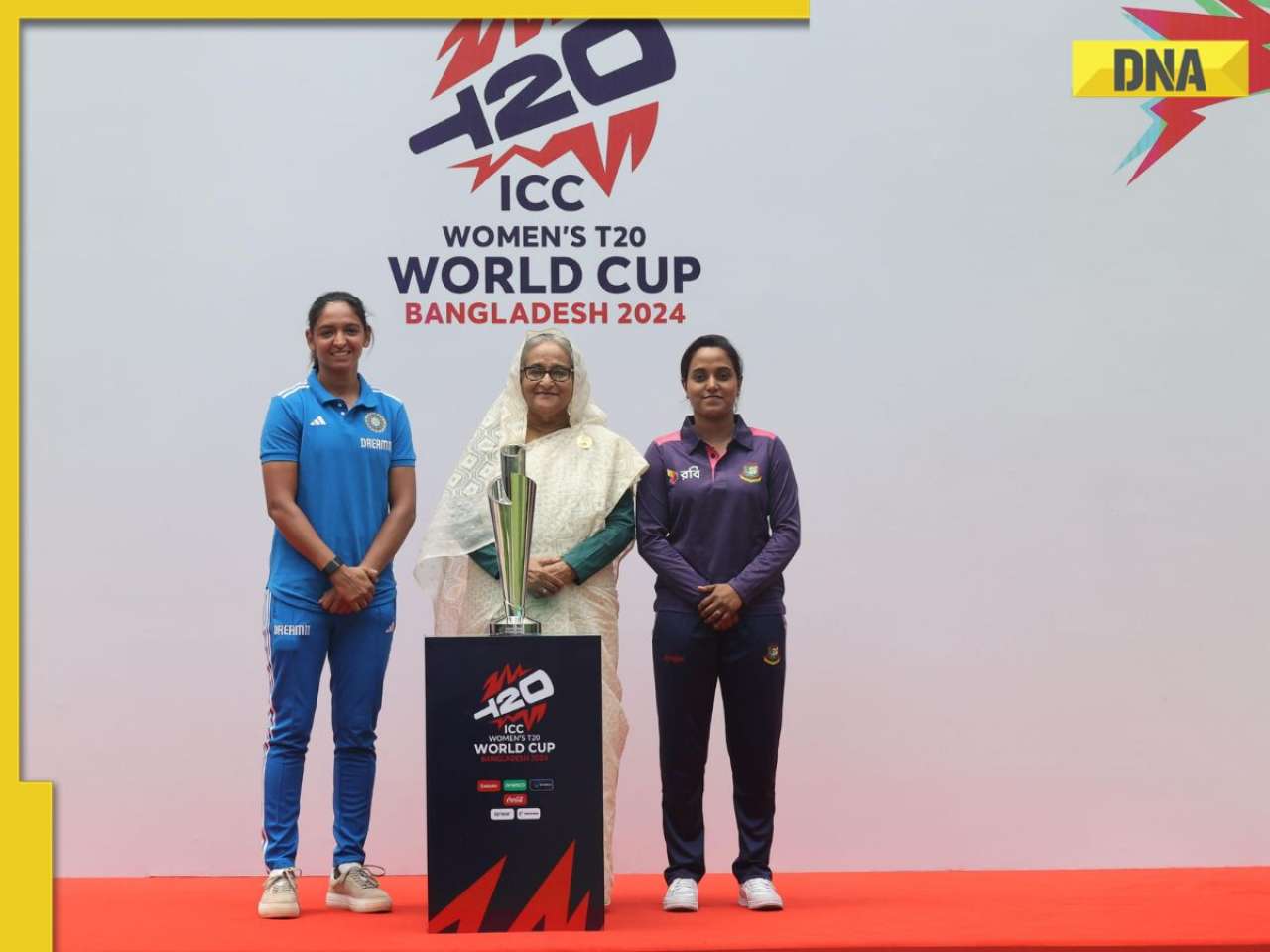
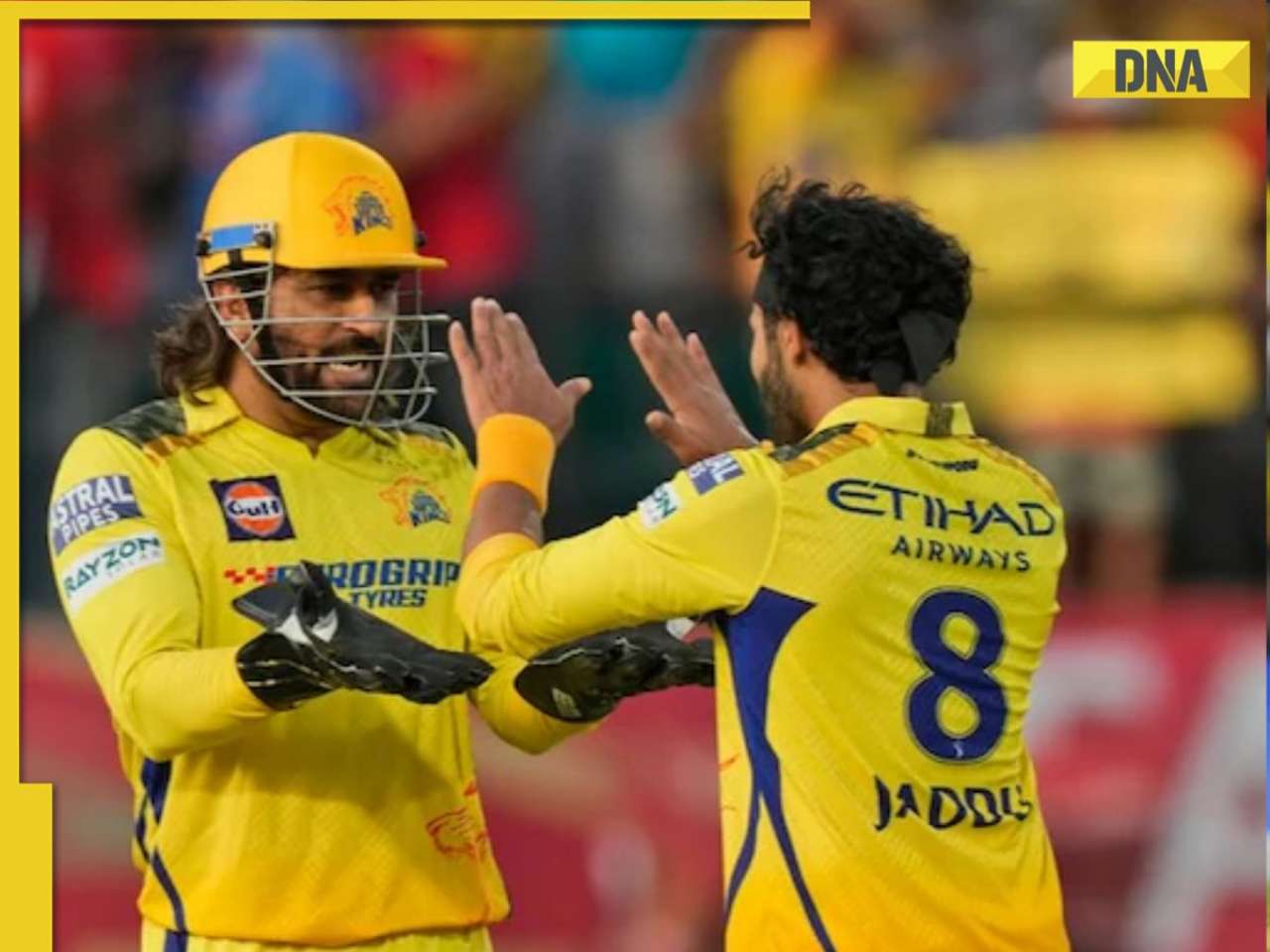
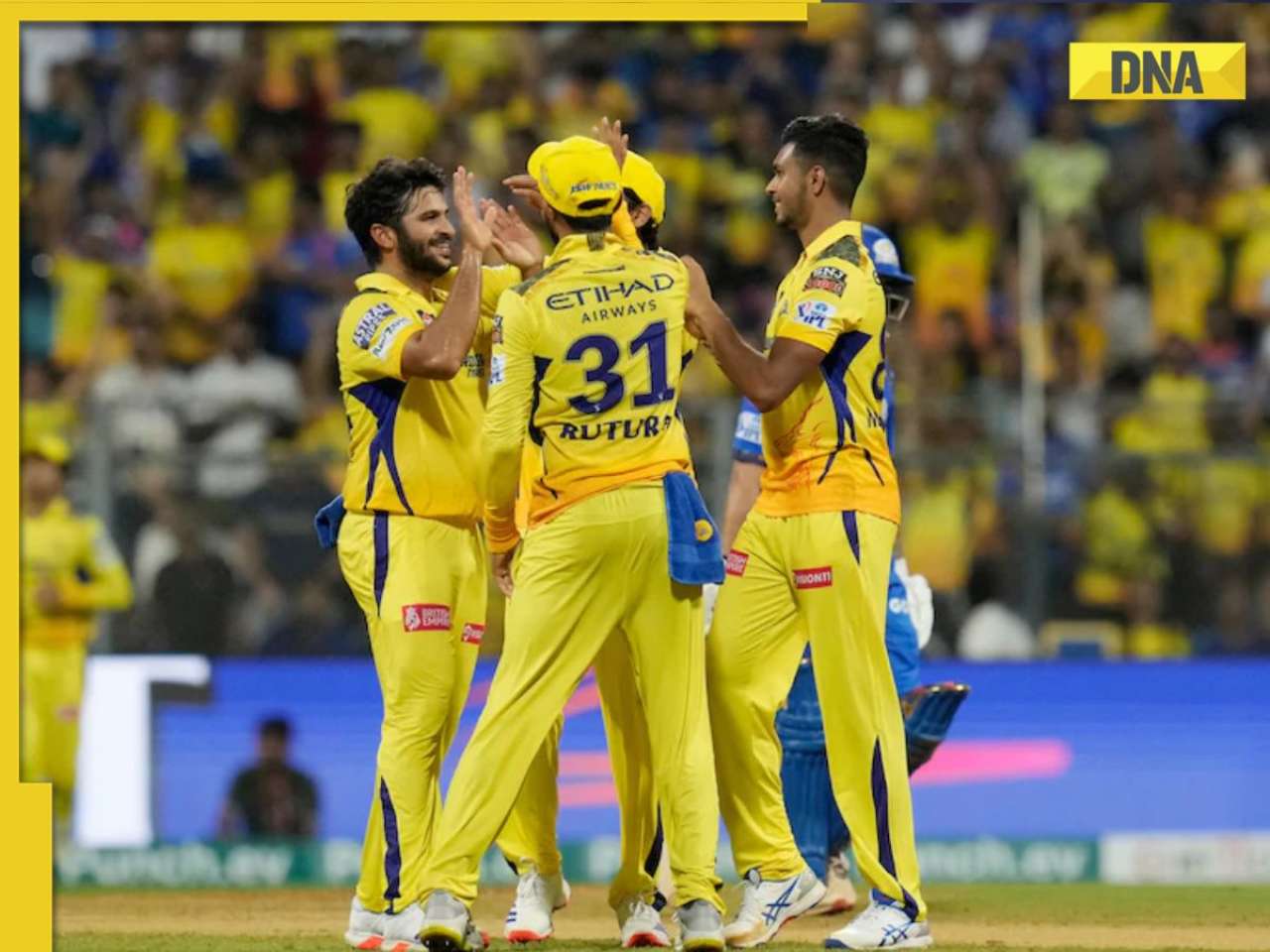
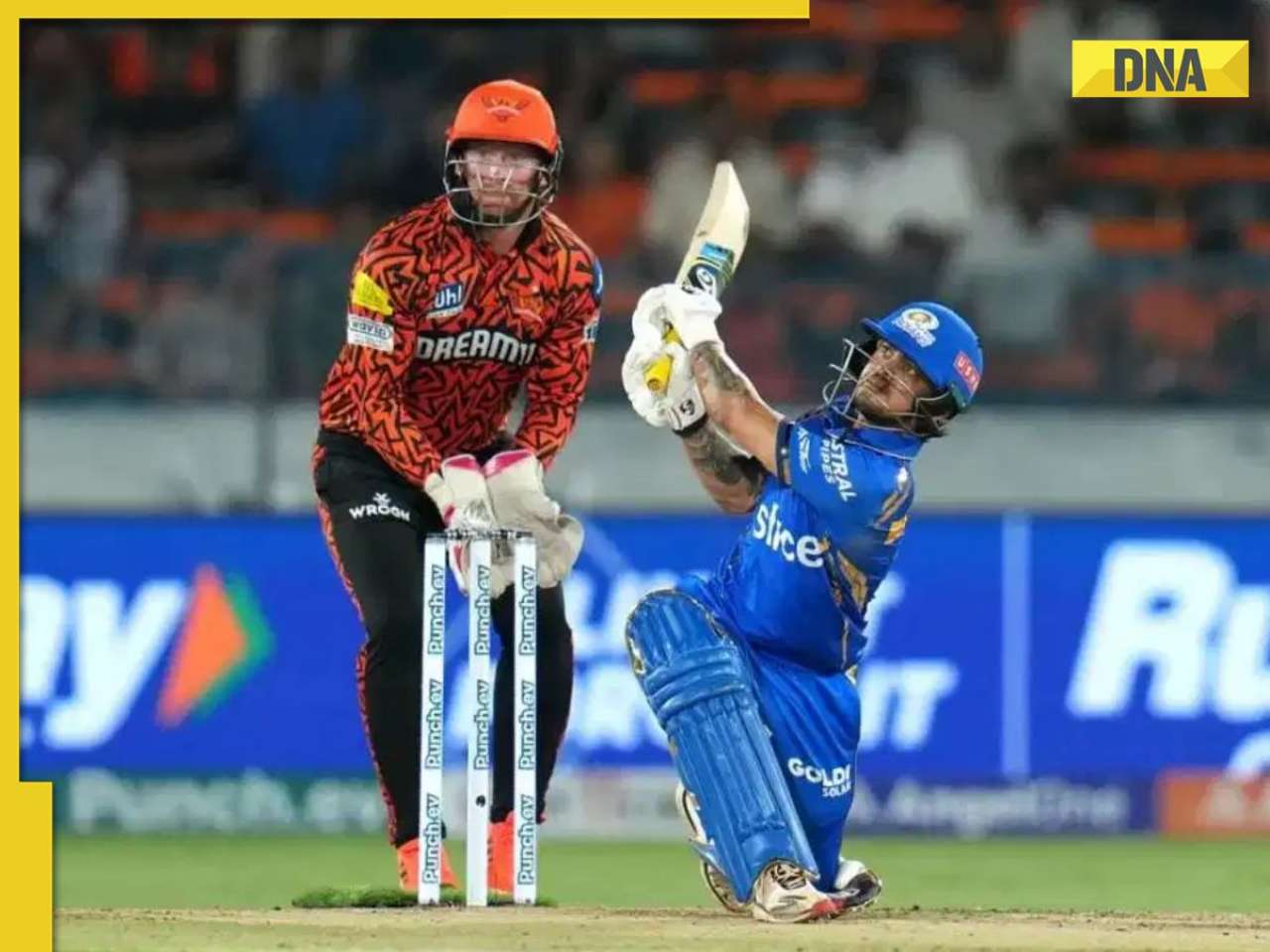











)
)
)
)
)
)